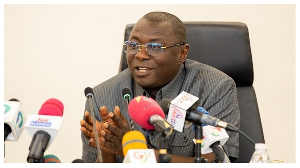Accra, July 15, GNA - The Ghana National Education Campaign Coalition (GNECC), has urged Accra Metropolitan Assembly (AMA) to carry out its mandate on basic school infrastructure development.
It also noted the need to allocate more funds towards infrastructure development in the sector for instance to rehabilitate dilapidated structures and provide utilities services in schools.
Mrs Judith Sawyerr, Chairperson of GNECC addressing a workshop in Accra on Thursday, said the Coalition had identified the problems and challenges of quality education in the Metropolis.
A survey, which covered 33 public basic schools in seven sub-metro areas, showed that most schools lacked adequate infrastructure that had created overcrowding in classrooms.
Mrs Sawyerr said problems that most school authorities had, covered areas such as toilet facilities, water provision, electricity, adequate classrooms and compounds. She indicated that as a result most of the schools had to run a shift system in order to contain the pupils/student population.
She said the survey also indicated that infrastructure in public schools was generally poor and did not offer a conducive and safe environment for the pupils. It also supported the abolishing of the shift system even though the planning and implementation had been inadequate.
Mrs Sawyerr said as of October 2008, the AMA has 736 public schools, but the Metropolitan Directorate of Education realized that 78 basic schools needed to be rehabilitated.
She said AMA's share of District Assemblies Common Fund was inadequate to cover its needs especially school infrastructure.
Mrs Sawyerr encouraged AMA to generate more revenue by collecting realistic property rates and taxes.
Mr Bright Kweku Appiah, Executive Director of Child Right International in an interview told the Ghana News Agency that AMA must develop a strategy to achieve its target in financing education.
He noted that to attain Education For All (EFA), and the Millennium Development Goal Two in Ghana by 2015, government must invest more in education.
Mr Felix Otoo of the Ministry of Education said the EFA goals would ensure that learning needs of all young people and adults were provided through equitable access to appropriate learning and life skills programme.
Mr Otoo who spoke in the topic "Judicious Utilization of Education Resources - Key to Achieving EFA and MDG 2" said the goals would improve all aspects of quality education and ensure excellence.
Regional News of Thursday, 15 July 2010
Source: GNA
















